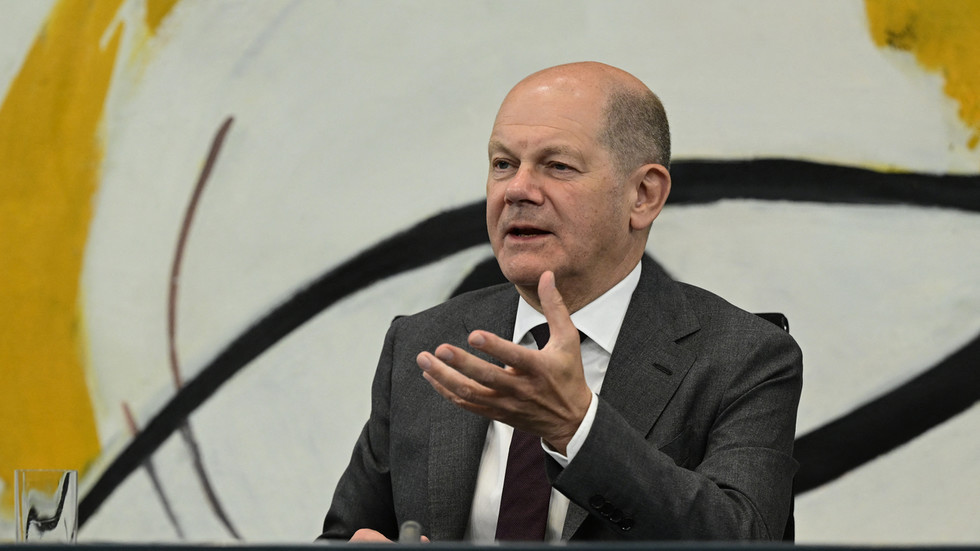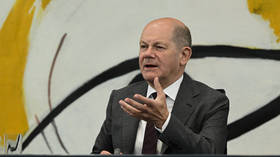
Over 70% of asylum seekers arriving in Germany lack any registration despite coming through other EU states, Olaf Scholz says

© AFP / John Macdougall
The number of asylum seekers arriving in Germany is “too high,” and the situation with migration cannot remain unchanged, German Chancellor Olaf Scholz said on Saturday while speaking to broadcaster RND.
“Things cannot remain as they are now: more than 70 percent of all refugees who arrive in Germany have not been registered beforehand, even though almost all of them have been in another EU country,” Scholz stated, promising to curb the irregular migration soon.
The German government is seeking to protect the country’s own borders as well as stay “fully united in stopping irregular migration into the European Union,” Scholz said. Berlin stands by its decision to tighten border checks with Poland and expects the measures taken to yield a noticeable result shortly.
“We hope that this will be noticeable quickly,” the chancellor stated.

Germany stepped up police patrols on its borders with fellow EU member Poland, as well as the Czech Republic, earlier this week. “We must stop the cruel business of smugglers who put human lives at risk for maximum profit,” Interior Minister Nancy Faeser said Wednesday, announcing the decision. According to the minister, nearly a quarter of migrants entering the country had paid thousands of dollars to get into the EU – and, ultimately, to Germany – via the Mediterranean Sea route or overland through the Balkans.
Announcing the initial proposal to step up border checks on the frontier with Poland, Scholz cited the ongoing cash-for-visa scandal unfolding in the country. According to a media investigation, Polish officials offered travel visas in exchange for bribes, with a vast majority of recipients of the illegally issued documents using them to travel into third Schengen states, the US, and elsewhere.
Some 350,000 visas were issued under the scheme, according to estimates, with the illegal services openly advertised by corrupt officials on social media, such as TikTok. Scholz invoking the scandal was apparently not taken lightly in Warsaw, with Poland threatening to reciprocally increase checks on its German border.




